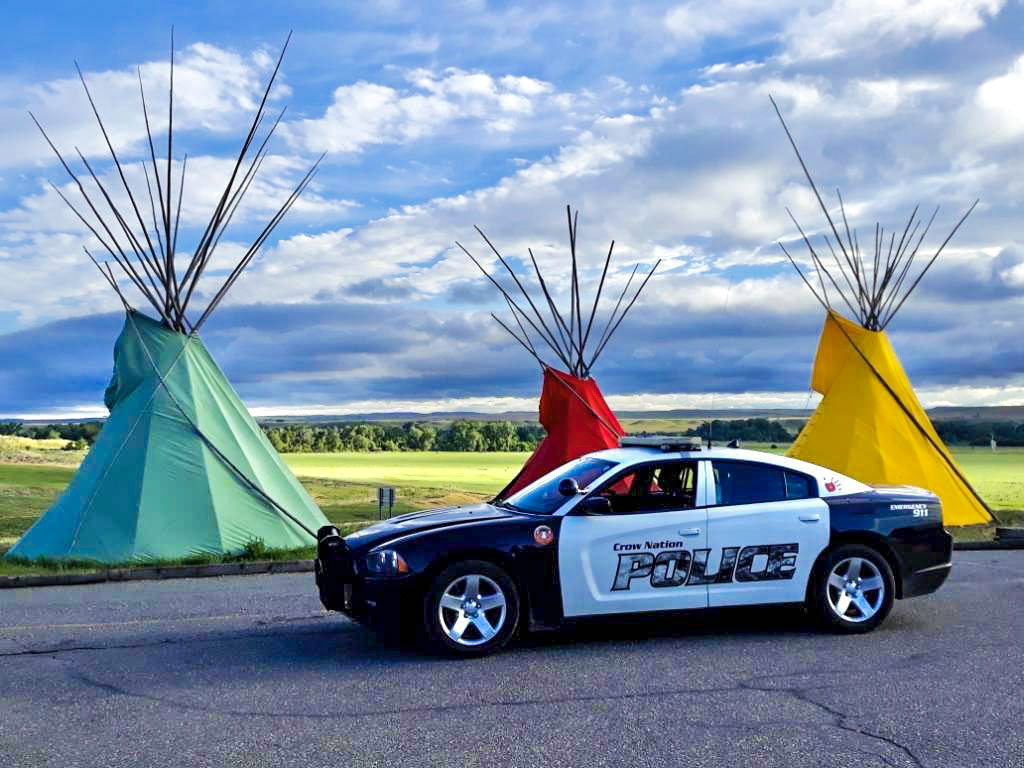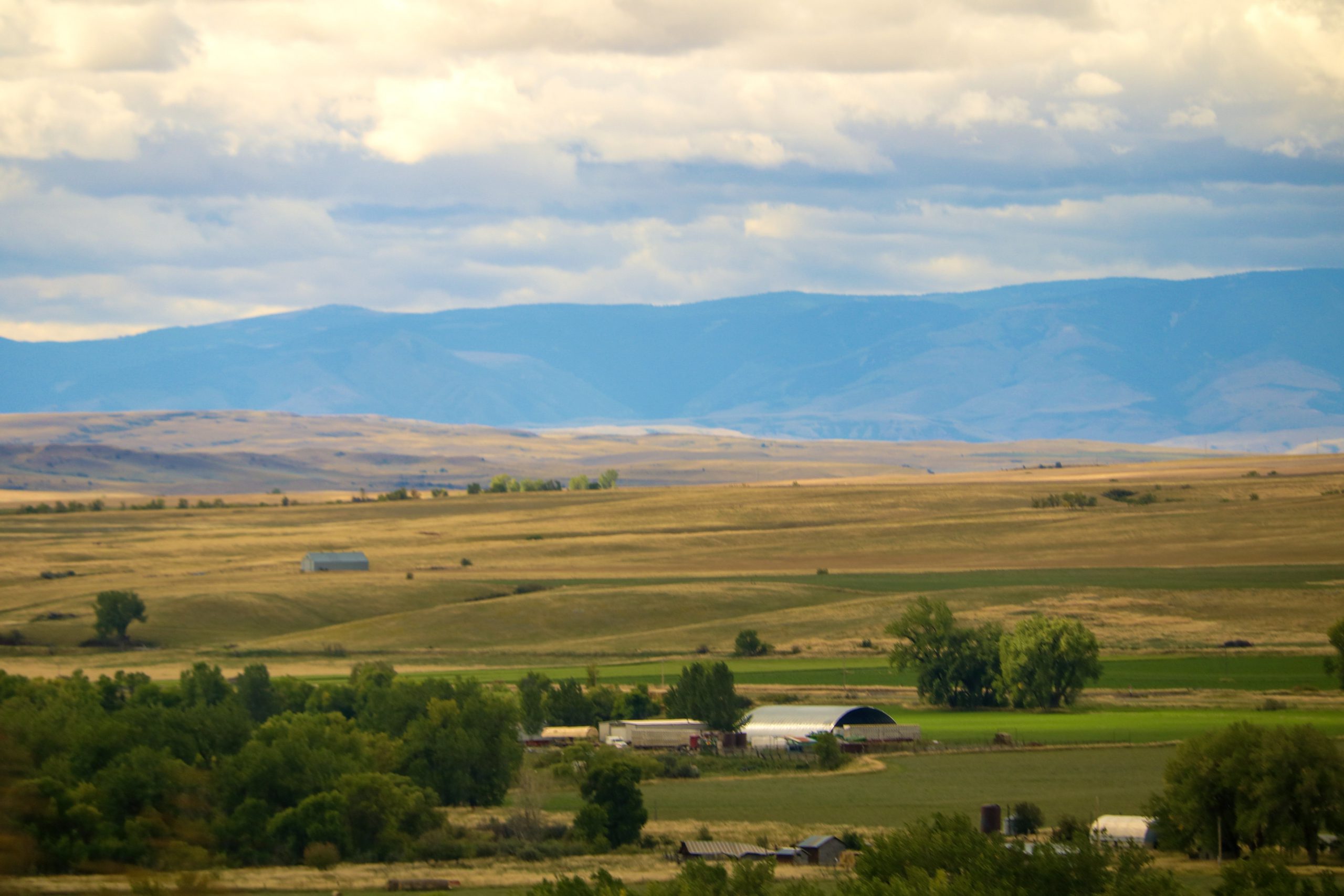Indianz.Com > News > Supreme Court backs tribal sovereignty in law enforcement case

Supreme Court backs tribal sovereignty in law enforcement case
Tuesday, June 1, 2021
Indianz.Com
Note: This post will be updated throughout the day.
The nation’s highest court has unanimously sided with tribal sovereignty in one of two Indian law cases on the docket during an otherwise quiet session.
By a vote of 9 to 0, the U.S. Supreme Court on Tuesday confirmed that tribal police officers can stop and search non-Indians who are suspected of violating the law. The decision was clear-cut, with the justices sending a message of support for the “inherent” sovereignty of Indian nations.
“Long ago we described Indian tribes as ‘distinct, independent political communities’ exercising sovereign authority,” Justice Stephen G. Breyer wrote for the court.
And while the U.S. government has repeatedly restricted the ways in which tribes can exercise their sovereignty, the case in which a non-Indian was stopped by an officer from the Crow Tribe does not fall into one of those situations, according to the court. Joshua James Cooley was found with drugs, firearms and even a small child when he was pulled over on the Crow Reservation in Montana.
“Here, no treaty or statute has explicitly divested Indian tribes of the policing authority at issue,” Breyer wrote in the nine-page opinion.
Despite the overt win, the decision was tied to a precedent known as Montana v. United States. In that case, the Supreme Court held that tribes, generally, lack jurisdiction over non-Indians. But as Breyer pointed out, an exception arises in situations where a non-Indian is engaging in conduct that ‘threatens or has some direct effect on … the health or welfare of the tribe. Activity that threatens public safety on reservations falls within the confines of Montana, the high court confirmed. “The second exception we have just quoted fits the present case, almost like a glove,” the decision stated. “The phrase speaks of the protection of the “health or welfare of the tribe.’” “To deny a tribal police officer authority to search and detain for a reasonable time any person he or she believes may commit or has committed a crime would make it difficult for tribes to protect themselves against ongoing threats,” continued Breyer, who was nominated to the court by Democratic former president Bill Clinton. “Such threats may be posed by, for instance, non-Indian drunk drivers, transporters of contraband, or other criminal offenders operating on roads within the boundaries of a tribal reservation.”Longer take coming soon. BUT for now…the #SCOTUS opinion in Cooley is a win but a complicated one for tribal sovereignty and here’s why: it’s largely an extension of Montana…and Montana is very difficult for tribes to satisfy.
— Elizabeth Hidalgo Reese (Yunpovi) (@yunpovi) June 1, 2021
Tribes and their advocates used the case to highlight the high rates of victimization in Indian Country. Briefs from law and policy experts pointed out that Native people — in particular, women — are more likely to be the victims of crime. Most of the offenders are non-Indians, according to data reported by the federal government. “For the past fifty years, Congress has consistently taken action to affirm tribal authority — not restrict it,” a brief led by the National Indigenous Women’s Resource Center and signed by 11 tribal nations and dozens of supporting organizations reads. “Repeatedly, Congress has recognized its own trust duty and obligation to respect and uphold this authority because of the connection between sovereignty and safety for Native women.” The Supreme Court decision in United States v. Cooley in fact embraced the argument advanced by Native women. Breyer wrote that Congress has repeatedly supported tribal sovereignty, recognizing the right for their law enforcement agencies to enter into agreements with other sovereigns to address “gaps in policing authority” on reservations. “To the contrary, in our view, existing legislation and executive action appear to operate on the assumption that tribes have retained this authority,” Breyer wrote in refuting Cooley’s attempts to undermine tribal sovereignty.“Are you an Indian, sir?”
— indianz.com (@indianz) March 23, 2021
The answer to the question is at the heart of a dispute before the nation's highest court.
Elizabeth Reese @yunpovi has your preview ahead of arguments in this closely-watched case.#SupremeCourt #TribalSovereigntyhttps://t.co/Uwipg8EHoA
The ruling is a victory for the federal government, whose prosecutors have been pursuing charges against Cooley based on his activity on the Crow Reservation. According to the indictment, he’s being accused of one count of possession with intent to distribute methamphetamine and one count of possession of a firearm in furtherance of a drug trafficking crime. By relying on his status as a non-Indian, Cooley had convinced a federal judge to suppress the evidence uncovered as a result of the stop and search initiated by the Crow police officer. Without proof of drug trafficking and the firearm, the U.S. Attorney’s Office in Montana would have little to go on so the Department of Justice appealed the ruling to a higher-level court. Rather than resolving the matter, the dispute gained even more significance when the 9th Circuit Court of Appeals affirmed the granting of Cooley’s motion to suppress the evidence. The outcome thus spread the impacts across Indian Country, setting precedent for tribal sovereignty on more than 100 reservations in several Western states.The nation’s highest court has taken up its first Indian law case of the term, and ensuring public safety on reservations finally seems to be at the forefront. #SupremeCourt #TribalSovereignty https://t.co/67ZGzLY2Sk
— indianz.com (@indianz) March 25, 2021

U.S. Supreme Court Decision: U.S. v. Cooley
Syllabus |
Opinion [Breyer] |
Concurrence [Alito] |
Full Document
Briefs: United States v. Cooley
Here are the briefs on the merits in support of tribal interests in United States v. Cooley.
Brief of Petitioner United States
Amicus Brief of National Indigenous Women’s Resource Center
Amicus Brief of the Lower Brule Sioux Tribe, et al.
Amicus Brief of Ute Indian Tribe
Amicus Brief of Indian Law and Policy Professors
Amicus Brief of National Congress of American Indians, et al.
Amicus Brief of Current and Former Members of Congress
Amicus Brief of Former US Attorneys
Amicus Brief of the Cayuga Nation, et al.
9th Circuit Court of Appeals Decisions
United States v. Cooley [Panel Decision] (March 21, 2019)United States v. Cooley [Denial of En Banc] (January 24, 2020)
Indianz.Com on SoundCloud
Jam out with the justices! Listen to lawyers! No, really, these are important U.S.
Supreme Court cases.
Related Stories
‘Endangers everyone on Indian reservations’: Supreme Court urged to respect tribal sovereignty (March 24, 2021)U.S. Supreme Court: United States v. Joshua James Cooley (March 24, 2021)
SCOTUSBlog: Supreme Court takes up messy tribal sovereignty case (March 22, 2021)
U.S. Supreme Court sets oral argument in ‘bad men’ treaty rights case (February 4, 2021)
Dispute over COVID-19 relief for tribal nations spills into Biden administration (January 25, 2021)
Indian Country Today: Shoshone-Bannock Tribes prevail in sovereignty dispute (January 13, 2021)
Cronkite News: Indian health care law in hands of nation’s highest court (November 17, 2020)
Chuck Hoskin: Protecting tribal sovereignty in Oklahoma (November 16, 2020)
Supreme Court hears arguments in Affordable Care Act case (November 10, 2020)
State of Alaska backs Native corporations in COVID-19 dispute (November 5, 2020)
COVID-19 funding dispute heads to Trump’s Supreme Court (November 3, 2020)
Rep. Markwayne Mullin: A historic pick for the Supreme Court (November 2, 2020)
Rep. Tom Cole: The right person for the Supreme Court (November 2, 2020)
Cronkite News: Supreme Court gains conservative majority with Justice Amy Coney Barrett (October 27, 2020)
Cronkite News: Vulnerable Republican pledges vote for Supreme Court nominee (October 22, 2020)
Cronkite News: Supreme Court to hear Trump border wall case (October 20, 2020)
Indian Country and the Affordable Care Act (October 16, 2020)
Senate Committee on the Judiciary: Nomination of the Honorable Amy Coney Barrett to be an Associate Justice of the Supreme Court of the United States (Day 4) (October 15, 2020)
Senate Committee on the Judiciary: Nomination of the Honorable Amy Coney Barrett to be an Associate Justice of the Supreme Court of the United States (Day 3) (October 14, 2020)
Sen. Udall: Indian health care at risk with Supreme Court nominee (October 13, 2020)
Senate Committee on the Judiciary: Nomination of the Honorable Amy Coney Barrett to be an Associate Justice of the Supreme Court of the United States (Day 2) (October 13, 2020)
Sen. Cantwell: ‘Real concerns’ as Supreme Court confirmation hearing opens on Indigenous Peoples Day (October 12, 2020)
Senate Committee on the Judiciary: Nomination of the Honorable Amy Coney Barrett to be an Associate Justice of the Supreme Court of the United States (October 12, 2020)
Indian Country Today: Fate of Indian Child Welfare Act up to federal courts (October 12, 2020)
Peter d’Errico: Racist Indian law doctrine springs into action (October 8, 2020)
Doug George-Kanentiio: The tragic legacy of Ruth Bader Ginsburg (October 7, 2020)
Supreme Court opens new session amid COVID-19 and controversy (October 6, 2020)
Sen. Tom Udall: A ‘clear and present threat’ to health care in Indian Country (October 5, 2020)
Native America Calling: Filling Justice Ruth Bader Ginsburg’s seat (October 2, 2020)
Trump administration deals with fallout from tribal victory at Supreme Court(September 30, 2020)
Republicans rush to confirm Supreme Court nominee ahead of election (September 28, 2020)
Montana American Indian Caucus: Don’t vote on U.S. Supreme Court nominee (September 28, 2020)
Montana Free Press: Affordable Care Act deemed essential for Indian Country (September 28, 2020)
Search
Filed Under
Tags
More Headlines
AUDIO: H.R.2916, a bill to ratify the Akwesasne Mohawk Land Claim
AUDIO: H.R.2389, the Quinault Indian Nation Land Transfer Act
AUDIO: H.R.2388, the Lower Elwha Klallam Tribe Project Lands Restoration Act
AUDIO: H.R.2302, the Shingle Springs Band of Miwok Indians Land Transfer Act
Native America Calling: Tribes fight for solutions to dwindling clean water sources
Native America Calling: Mental health experts point to personal connections to maintain winter mental health
Native America Calling: Tribes ponder blood quantum alternative
Defense bill snubs Indian Country in favor of Lumbee federal recognition
NAFOA: 5 Things You Need to Know this Week (December 8, 2025)
Chuck Hoskin: Cherokee Nation benefits from extension of health care credits
Native America Calling: Tribal museums reflect on tumultuous year, chart their next steps
Press Release: National Museum of the American Indian hosts Native art market
AUDIO: Sea Lion Predation in the Pacific Northwest
Native America Calling: Tribal colleges see an uncertain federal funding road ahead
Native America Calling: Short films taking on big stories
More Headlines
AUDIO: H.R.2389, the Quinault Indian Nation Land Transfer Act
AUDIO: H.R.2388, the Lower Elwha Klallam Tribe Project Lands Restoration Act
AUDIO: H.R.2302, the Shingle Springs Band of Miwok Indians Land Transfer Act
Native America Calling: Tribes fight for solutions to dwindling clean water sources
Native America Calling: Mental health experts point to personal connections to maintain winter mental health
Native America Calling: Tribes ponder blood quantum alternative
Defense bill snubs Indian Country in favor of Lumbee federal recognition
NAFOA: 5 Things You Need to Know this Week (December 8, 2025)
Chuck Hoskin: Cherokee Nation benefits from extension of health care credits
Native America Calling: Tribal museums reflect on tumultuous year, chart their next steps
Press Release: National Museum of the American Indian hosts Native art market
AUDIO: Sea Lion Predation in the Pacific Northwest
Native America Calling: Tribal colleges see an uncertain federal funding road ahead
Native America Calling: Short films taking on big stories
More Headlines